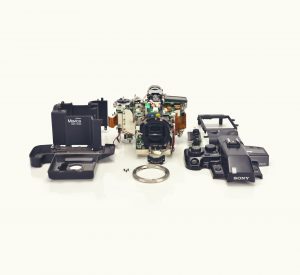
Credit: Barrett Ward https://unsplash.com/photos/ehbfBJAGnW8?utm_source=unsplash&utm_medium=referral&utm_content=creditShareLink
1/19/2022 17:48 Edit – I had the incorrect bill listed. Correct bill number is HB1810.
I am a staunch proponent for Right to Repair.
I’ve seen for myself how companies take measures to ensure their devices fail or are not repairable after a set number of years to continue generating sales. I’ve seen articles and videos of other’s experiences in trying to repair devices and the obstacles that must be overcome just to achieve the goal of a fully functioning device. Coming close to breaking your device just to get another few years out of it is just an example of what should be considered criminal activity by companies. Right to Repair is a human right in my opinion, as every person that buys a device has ownership of that device for the life of it. Planned obsolescence should be a criminal offense that carries heavy penalties for any company found guilty of implementing it just to generate a few more sales year-over-year. It creates e-waste and is extremely harmful to our environment.
Enter HB1810, the Right to Repair bill that was introduced to the Washington state House Committee on Consumer Protection and Business on January 10th, 2022. It’s open for the public to comment in support of the bill – link here. I strongly recommend anyone that also knows about what Right to Repair is, and is in Washington, to immediately go and comment in favor of this bill. As in, go click that link and leave here. Like now. Go, do it! Let your family, friends, colleagues, and random people on the street know about it to, and encourage them to support the bill as well. If haven’t heard about Right to Repair, keep reading, then go comment in support of it afterwards.
What is Right to Repair (henceforth R2R)? It’s the concept that you own your device and have full capabilities on repairing it yourself to keep it functioning or by allowing a 3rd party to repair it. The core tenets for R2R are:
- The ability to purchase replacement parts directly from the manufacturer instead of parts off scrapped devices
- The ability to open a device to service it using “normal” tools in a non-destructive manner
- Not being required to have specific software or a manufacturer supplied device in order to service the software for the device (updating firmware, troubleshooting, etc.)
This has been actively fought against by all sorts of companies:
-John Deere that goes after farmers trying to repair their tractors.
-Apple has claimed that jailbreaking is the equivalent of copy write infringement and designs their devices to be almost impossible to repair. They actively go after 3rd party repair companies that attempt to provide repair service for Apple devices. Apple has gotten to the point of making iPhones with components that are locked to the original device, meaning donor parts from broken devices cannot be swapped in.
-Tesla claims R2R will lead to data insecurity and has put measures in place to prevent individuals and 3rd party repair shops from being able to service and modify their cars.
These are just three of numerous companies that actively fight R2R (see more here), and their main reason is money. Tesla wants to charge you ten of thousands of dollars to repair your bumper. Apple wants you to buy another device. John Deere makes money off servicing their tractors to continue having a constant income stream.
These are all anti-consumer tactics that need to end. R2R laws fix that. They do not, as much as these companies want to fear-monger, lead to insecurity of your devices or break copy write laws. Changing your battery in your phone so you can get another four years out of it is not a “sin” nor should it result in you having to almost destroy your device to do so.
We are at a point where just changing your engine and transmission oil is impossible without going to a company-affiliated repair shop.
We are at a point where your decision in how much storage and RAM you choose before buying your laptop can cripple you later when you need more of either or both.
I encourage you to take time in looking up others that have written or have spoken in favor of R2R, to see what they have to say as well if you are still undecided. I hope in just this short article, that you can easily find something right next to you that has a self-imposed shelf life put in place by the manufacturer, for no reason other than to extract more money out of you. That most likely is the device you are reading this article on.
Here are others that are in support of R2R:
Louis Rossmann has been one of the most consistent voices in advocating for R2R. Link to his channel here, a playlist on his channel of R2R videos here, and a Wall Street Journal video featuring Louis about Apple “authorized” repair shops vs “unauthorized” repair shops here.
Hugh Jeffreys, a Youtuber that posts videos about device tear downs, has shown how Apple is stopping the ability to swap out components between devices: here and here
iFixit in support of R2R: here and here
The Repair Association, founded in 2013 and backed by major groups, companies, and individuals: link
In conclusion, Right to Repair is a fundamental right that saves you money, keeps your devices functioning, and prevents additional waste and destruction to our environment.
Support HB1810!
Cheers!